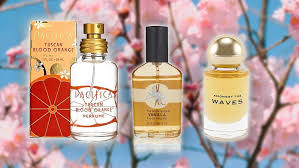We help the world growing since 1990

Perfume is a mixture of fragrant essential oils or aroma compounds, fixatives and solvents, used to give the human body, animals, food, objects, and living-spaces an agreeable scent. It is usually in liquid form and used to give a pleasant scent to a person's body. Ancient texts and archaeological excavations show the use of perfumes in some of the earliest human civilizations. Modern perfumery began in the late 19th century with the commercial synthesis of aroma compounds such as vanillin or coumarin, which allowed for the composition of perfumes with smells previously unattainable solely from natural aromatics alone.
The word perfume derives from the Latin perfumare, meaning "to smoke through". Perfumery, as the art of making perfumes, began in ancient Mesopotamia, Egypt, the Indus Valley Civilization and maybe Ancient China. It was further refined by the Romans and the Arabs.
Perfume types reflect the concentration of aromatic compounds in a solvent, which in fine fragrance is typically ethanol or a mix of water and ethanol. Various sources differ considerably in the definitions of perfume types. The intensity and longevity of a perfume is based on the concentration, intensity, and longevity of the aromatic compounds, or perfume oils, used. As the percentage of aromatic compounds increases, so does the intensity and longevity of the scent.